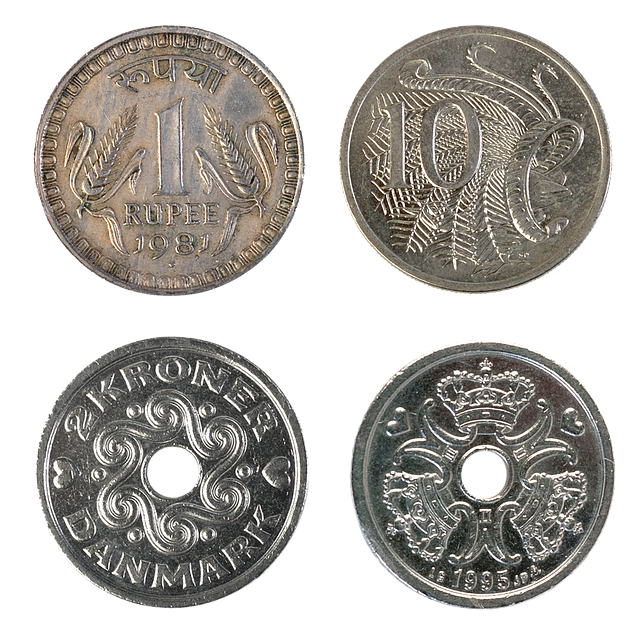In the realm of international business, particularly for companies with UK operations or those seeking to enter the UK market, the translation of securities filings such as 10-K and 10-Q is a critical aspect that requires specialized attention. Securities Filings UK (SFUK) translation services are indispensable in this context, ensuring that all financial disclosures are accurately translated to reflect the original intent while adhering to both US GAAP and UK accounting standards. These translations must be certified by recognized bodies like the Institute of Translation and Interpreting (ITI) to meet legal acceptance for official purposes. By employing professionals with expertise in financial terminology, complex regulatory environments, and market-specific nuances, companies can confidently navigate cross-border transactions, maintain investor trust, and satisfy compliance requirements set by entities like the Financial Conduct Authority (FCA). Accurate translations are paramount for transparent communication with international stakeholders and for upholding a company's reputation in new markets.
navigating the complexities of international business requires meticulous attention to compliance and transparency. For companies seeking to operate in the UK market, translating securities reports such as Form 10-K and Form 10-Q into English becomes a pivotal task. This article delves into the critical role of certified translations for securities filings within the UK framework, elucidating their necessity and impact on global market operations. We will explore the regulatory landscape, key differences between certified and non-certified translations, and the importance of engaging with specialized translation services for securities filings UK. Additionally, we provide an overview of the translation process to ensure accuracy and compliance, culminating in a case study that highlights successful international expansion through precise translation of securities reports.
- Understanding the Necessity of Certified Translations for Securities Filings in the UK
- The Role of 10-K and 10-Q Reports in Global Market Operations
- Overview of UK Regulatory Requirements for Foreign Language Securities Documents
- Key Differences Between Certified and Non-Certified Translations
- Identifying Reliable Translation Services Specializing in Securities Filings
- The Translation Process: Ensuring Accuracy and Compliance in 10-K and 10-Q Documents
- Case Study: Successful International Expansion through Precise Translation of Securities Reports
Understanding the Necessity of Certified Translations for Securities Filings in the UK

In the context of international business, particularly within the UK, the accurate and legal translation of securities filings such as the 10-K and 10-Q is paramount. These documents are critical for investors to make informed decisions and for companies to comply with financial regulations both domestically and abroad. The UK, being a hub for global finance, necessitates that foreign companies listing their securities on UK markets provide transparent and understandable financial information in English. Certified translations of these filings ensure that the translated content not only adheres to the linguistic standards required by the UK’s Financial Conduct Authority (FCA) but also maintains the integrity and veracity of the original documents. Professional translation services specialising in securities filings UK are adept at navigating the complexities of legal terminology, financial reporting standards, and cultural nuances that can affect meaning and interpretation across different languages. This expertise is essential to avoid miscommunication or legal repercussions, thereby safeguarding both the company’s reputation and its compliance with UK financial regulations.
The necessity for certified translations of securities filings like 10-K and 10-Q in the UK extends beyond mere legality; it is a critical component of cross-border business communication. These documents are scrutinised by regulatory bodies, investors, and other stakeholders who rely on their accuracy to assess financial health and performance. Translation services that offer certified translations for securities filings UK are equipped with professional translators who are not only native speakers but also possess a deep understanding of accounting principles and the legal framework governing financial disclosures. This combination of linguistic proficiency and industry knowledge ensures that all disclosed information is both legally and functionally accurate, providing stakeholders with reliable and actionable insights into a company’s operations and prospects.
The Role of 10-K and 10-Q Reports in Global Market Operations

10-K and 10-Q reports serve as critical financial documents for publicly traded companies in the United Kingdom, providing comprehensive insights into a company’s financial performance, governance, and risk factors. These annual and quarterly filings are essential for investors, regulatory bodies, and other stakeholders to make informed decisions, assess company health, and ensure compliance with legal requirements. As global market operations expand, the need for accurate translations of these securities filings becomes paramount. Companies operating cross-border must present their financial statements in the local language to comply with foreign regulations and to communicate effectively with a diverse shareholder base. Certified translation services play an integral role in this process, ensuring that the nuances and complexities of financial terminology are accurately conveyed in the target language. These translations not only facilitate compliance but also support transparency and trust within the global investment community. In the UK, where English is the primary language, the importance of these services may seem less pressing. However, for multinational companies with operations or investors abroad, providing translated 10-K and 10-Q reports is not just a legal necessity but a strategic tool for international expansion and competitiveness. The demand for securities filings UK translation services underscores the need for meticulous and precise translations that uphold the integrity of the original content, enabling businesses to navigate the complexities of global markets with confidence.
Overview of UK Regulatory Requirements for Foreign Language Securities Documents

In the UK, regulatory compliance is paramount for publicly listed companies, particularly when it comes to securities filings such as 10-K and 10-Q. These documents are critical for maintaining transparency and informing stakeholders about a company’s financial performance and status. For foreign entities listing on UK exchanges or UK companies with operations abroad, the translation of these securities filings into English or the relevant foreign language is not just a matter of communication but a legal necessity. The UK’s Financial Conduct Authority (FCA) mandates that all such documents be accurately translated to ensure they meet the regulatory standards set forth by both UK and EU legislation. This includes the precise translation of financial terminology, which often requires specialized knowledge of both the source and target languages as well as a deep understanding of securities regulations.
To navigate these requirements, companies must engage with certified translation services that specialize in securities filings UK translations. These service providers are adept at handling the intricacies of financial language and regulatory compliance, ensuring that translated documents reflect all original disclosures and financial data accurately. The use of professional, certified translators is essential to avoid misinterpretation or legal repercussions. Moreover, these translation services must be well-versed in both the UK’s and foreign jurisdictions’ legal frameworks to guarantee compliance with all applicable laws and regulations. This level of expertise is crucial for companies operating across borders, as it not only safeguards their reputation but also ensures that they fulfill their obligations under the law.
Key Differences Between Certified and Non-Certified Translations

When companies with international operations file their securities reports, such as the UK equivalents of 10-K and 10-Q, translating these documents into other languages is often necessary to communicate with stakeholders globally. The key differences between certified and non-certified translations are primarily related to accuracy, reliability, and legal recognition. Certified translations, provided by specialized translation services, involve a formal certification that confirms the translated content’s exactness and fidelity to the original document. This certification is typically afforded by a certified translator or translation agency recognized by relevant authorities, such as the Institute of Translation and Interpreting (ITI) in the UK. It is this certification that distinguishes certified translations from their non-certified counterparts, making them legally acceptable and often required for official purposes.
In contrast, non-certified translations, while still providing a comprehensive understanding of the source text, do not come with a formal statement or certification from a recognized authority. They are commonly used for general informational purposes where legal recognition is not a prerequisite. However, for securities filings in the UK, non-certified translations may not be sufficient to meet regulatory compliance requirements. Companies must ensure that their translated securities reports, whether 10-K or 10-Q translation services are engaged for, are accurate and reflect the full legal import of the original documents. This is crucial for maintaining investor confidence and adhering to the stringent standards set by financial regulators like the Financial Conduct Authority (FCA) in the UK. Thus, when it comes to securities filings translation services, companies should opt for certified translations to guarantee the document’s integrity and legal validity across international borders.
Identifying Reliable Translation Services Specializing in Securities Filings

When venturing into the realm of international business, the accuracy and compliance of securities filings are paramount. For companies with operations in the UK or those looking to expand their reach there, translating critical documents such as 10-K and 10-Q securities filings accurately is not just a matter of semantics—it’s a legal requirement for transparency and regulatory adherence. Identifying a translation service that specializes in this niche is crucial for ensuring that the translated content aligns with UK accounting standards and disclosure requirements, as set forth by the Financial Conduct Authority (FCA). Such services must possess a deep understanding of both English and the target language, as well as the intricacies of securities law. They should be adept at handling complex financial terminology and capable of providing translations that maintain the integrity of the original documents. Companies should look for translation agencies with certifications, proven expertise in financial documentation, and a track record of working with international regulatory bodies. By choosing a service well-versed in securities filings UK translation, businesses can navigate cross-border transactions with confidence, ensuring their disclosures are both legally compliant and comprehensible to stakeholders across different jurisdictions. It’s imperative to select a provider that not only offers linguistic precision but also stays abreast of changes in regulations and standards, thus guaranteeing the continued relevance and reliability of their translations.
The Translation Process: Ensuring Accuracy and Compliance in 10-K and 10-Q Documents

When navigating the complexities of international business, accurately translating securities filings such as 10-K and 10-Q is paramount. These documents, critical for investor relations and compliance with financial regulations, must convey precise financial data and disclosures. Certified translation services specializing in securities filings UK play a crucial role in this process. They employ expert linguists who are not only proficient in the relevant languages but also well-versed in the financial lexicon and accounting standards specific to each market. These translators ensure that every figure, footnote, and disclosure is accurately rendered into the target language, maintaining the integrity of the original documents. The translation services adhere to stringent quality control measures and compliance requirements, such as the Directive 2012/34/EU for EU listed companies, ensuring that the translated securities filings meet both legal and industry standards. This commitment to accuracy and adherence to regulatory frameworks is essential for maintaining investor confidence and facilitating cross-border transactions in a globalized marketplace. Companies seeking these services can rest assured that their securities filings UK will be handled with the utmost precision, enabling them to communicate effectively with international stakeholders and fulfill their legal obligations.
Case Study: Successful International Expansion through Precise Translation of Securities Reports

When a company aims to expand its operations internationally, accurate and compliant translation of securities filings is paramount. A case in point is a multinational corporation that sought to establish a foothold in the UK market. The success of this expansion hinged on the precise translation of its securities filings, including 10-K and 10-Q, which are critical for transparency and regulatory compliance in both the US and UK markets. Utilizing specialized securities filings UK translation services, the company ensured that all financial disclosures were translated with the utmost precision and adherence to local regulations. This meticulous approach allowed potential investors in the UK to fully understand the company’s financial position, governance, and risk factors, fostering trust and paving the way for successful investment. The translation services employed linguistic experts well-versed in both the source and target languages, as well as the intricate details of securities law and accounting standards that differ between the US and UK. This level of accuracy and compliance was instrumental in the company’s ability to communicate effectively with stakeholders, gain investor confidence, and achieve its international expansion goals. The case underscores the importance of selecting a reputable translation service provider that specializes in securities filings UK translation services, thereby mitigating risks associated with miscommunication or non-compliance.
In concluding this discussion on the critical role of certified translations for securities filings like 10-K and 10-Q within the UK regulatory framework, it is clear that precision and compliance are paramount. The necessity for these documents to be accurately translated cannot be overstated, as they are instrumental in global market operations. Companies looking to navigate the intricacies of securities filings UK must engage with specialized translation services to ensure that their reports meet the stringent requirements set forth by regulatory bodies. By doing so, businesses can effectively communicate their financial status and strategic direction to a broader audience, facilitating international expansion and fostering investor confidence. The meticulous process of translating these documents demands expertise in both linguistic nuance and industry-specific knowledge. As evidenced by successful case studies, the impact of precise translation services for securities filings is significant, making them an indispensable tool for companies operating across borders.


